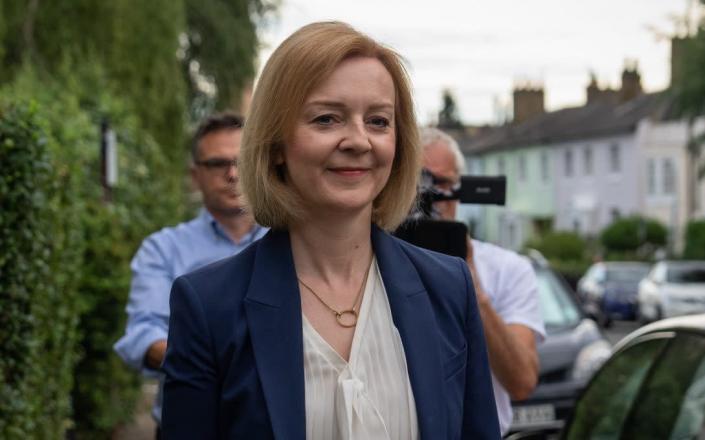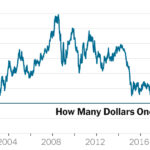
Liz Truss has appealed to Brexit-supporting Conservative MPs who backed Suella Braverman and Nadhim Zahawi to join her campaign to be prime minister and unite the Right.
The Foreign Secretary came third in the first round of voting in the contest to replace Boris Johnson, with 50 backers – ahead of Kemi Badenoch, Tom Tugendhat and Mrs Braverman.
[embedded content]
Further votes will now follow on Thursday and next week, until the field is whittled down to just two candidates to go in front of the party’s 200,000 members.
On Wednesday night, Ms Truss was holding one to one meetings in her House of Commons office to try to win round straggling Tory Right-wingers.
Meetings with MPs who might be tempted to come to her camp were being coordinated by Therese Coffey, her unofficial chief whip.
In a statement, Ms Truss issued an appeal to pro-Brexit MPs to join her campaign to help “deliver the benefits of Brexit”.
Her spokesman said: “Now is the time for colleagues to unite behind the candidate who will cut taxes, deliver the real economic change we need from day one and ensure Putin loses in Ukraine.
“Liz has the experience to deliver the benefits of Brexit from day one, grow our economy and support working families.”
One MP supporting Mr Tugendhat forecast that 25 out of the 43 votes won by Mr Hunt and Mr Zahawi will go to the chairman of the foreign affairs committee, with the remaining 18 votes up for grabs for Ms Truss and other Brexiteer candidates.
There was further pressure on Brexiteer MPs to join Ms Truss’ campaign from Mark Francois, chairman of the European Research Group of Conservative MPs, who earlier came out for Ms Truss.
He told The Telegraph: “Suella Braverman has had a very creditable campaign and has out-polled the current Chancellor. But she will now need to reflect carefully on what to do next.”
MPs on the ERG’s own WhatsApp group were said to be urging each other to unite around a single Brexit-supporting candidate. One Tory MP said: “Now is the time to cash in her chips.”
A government aide said that Ms Braverman’s vote “could collapse” at the second round of voting on Thursday “as her votes are eaten up” by other campaigns.
The prize remained endorsements from the remaining candidates outside the top three.
“Suella, Tugendhat and Nadhim will all be promised Cabinet posts tonight,” the aide said.
However, a senior source close to Mrs Braverman’s camp said she would not fold her campaign, insisting: “The hustings could make all the difference. We fight on, we fight to win – as someone once said.”
Sir Iain Duncan Smith, a prominent Brexit-supporting backer of Ms Truss, admitted she had not won a “fantastic amount” of votes.
“The truth is it’s much more difficult to be the leader of the pack than it is to come through the pack and what you’ll see is a lot of switching of votes,” he told LBC on Thursday.
Liz Truss: I’ll borrow more to cut taxes
In an interview with Thursday’s Spectator magazine, Ms Truss said she would borrow more to fund tax cuts.
She said: “Covid was a one-off crisis. The debt that we accumulated as a result of that, the £400 billion we spent, should be seen as a long-term debt – like a war debt – and needs to be longer-term.
“I don’t agree with the Treasury orthodoxy of immediately seeking to pay that back and balance the books and damage economic growth.”
She also recast her role at the 2016 as a “reluctant Remainer”, saying: “If I could vote now, I would vote to leave the European Union. I was a reluctant Remainer.”
Ms Truss said she would cut the size of government as part of her bid to grow the economy.
“I’d have a temporary moratorium on the green energy levy to enable businesses and industry to thrive while looking at the best way of delivering net zero.
“I also support far deeper implementation of freeports, so that they are genuinely low tax. Then low planning zones – new investment zones around key parts of the United Kingdom, with much clearer planning rules so people can get on with building straight away to generate those jobs and opportunities. I want to level up in a Conservative way.
“We’ve got five million people economically inactive – we need to get those people into work. We need to reform welfare. We need to focus the Government on what we need to do, rather than trying to do everything. I spent two years at the Treasury as chief secretary, I’ve got experience of spending control.”




